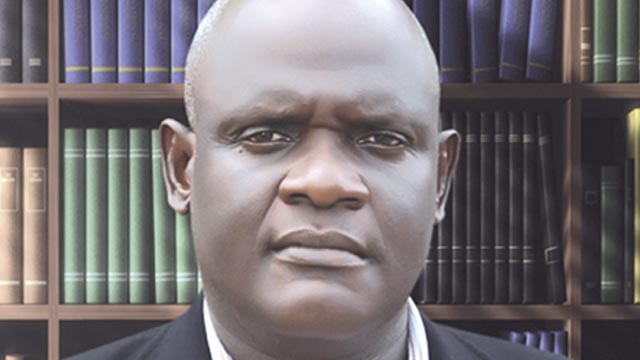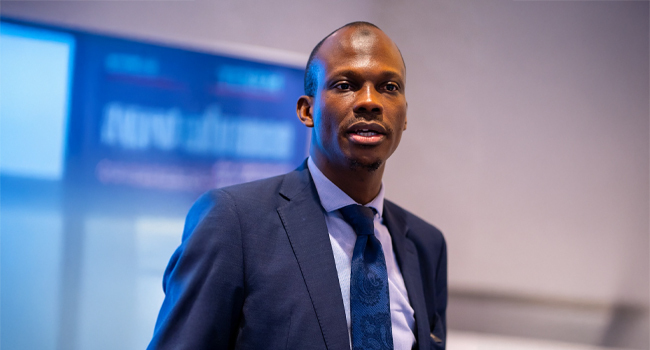
Professor of African Philosophy and Logic at the Nnamdi Azikwe University, Maduabuchi Dukor, has warned against voicing negative narratives about the relevance of philosophy in a scientific age.
This was one of the major takeaways while delivering his 93rd inaugural lecture, titled, ‘Philosophy and bread on the table reflections on existence and essence of being.’
Prof Dukor described philosophy as an historical discipline, which has continued to shape civilisation up till the digital era.
As part of efforts to change the narratives, Dukor, who has done extensive studies focusing on the relevance of philosophy to the society, said:
“This has propelled the trajectories of my researches to defending and propagating philosophy as the primus-interperus of civilization and progenitor of sciences.”
While reacting to an article published in The Guardian on Sunday of November 16, 2014 titled: Philosophy and the national question, where the writer, Professor Tunji Olaopa challenged philosophers to prove why the World Philosophy Day is celebrated, he noted that many people all over the world don’t take cognizance of the day.
Specifically, he took up Olaopa, saying the role philosophy plays in the contribution of knowledge and development is underrated and undermined. He added that through philosophy, the United Nations Education, Scientific and Cultural Organization (UNESCO), was founded.
According to him, “Let’s not forget that UNESCO was born out of a philosophical, ethical and moral interrogation about the condition of the world…” (Dukor, 2011) and by the way, let not us not forget that philosophy is monarch of all disciplines and the interrogator of all of them.
“Therefore, UNESCO, on world philosophy days, celebrates and imbibes philosophical values of critical and scientific thinking which precedes bread on the table in all universities, among nations and cultures as well as in private and public spaces all over the world.”
He further said: “The question of philosophy being more than the bread on the table in the 21st century is a subject matter that has been affirming and re-affirming its relevance from one century to the other.
“It is no less relevant in the age of climate change, small arms and light weapons proliferation, wars, conflicts, hunger, global economic recession, natural and unnatural disasters, physical and metaphysical evils, post Ebola, post coronavirus and so on even as the world is in danger or in the precipice into Bermuda Triangle or the Abyss of the unknown, which Christians call ‘the end of time’.”
He pointed out that UNESCO, by the celebration of Philosophy, promotes epistemology, values and ontology so that science and technological discoveries would no longer be the exclusive traditions of one race.
He, however, argued that philosophy and science have been in a close battle over supremacy, adding that the latter is dangling the carrot of mammon to the overwhelmed and overwhelming majority in the world.
He : “At the beginning, philosophy, an all-inclusive discipline and name for all branches of inquiry into human and earthly existence, had asked; what is the substance? Non-philosophers have disagreed on this, but only philosophy has consistently and paradoxically affirmed the substantiality of ‘existence precedes essence’ as the existentialists would hold or ‘essence precedes existence’ as the idealist would hold.”
He stressed that disciplines in Humanities like Religion, History, languages, law and even social science constitute one and many paradoxes of philosophy because philosophical problem is implied in all of them and as such the perennial relevance of Humanities is cathartically reduced to philosophy.
“Hence philosophical problem dies hard, neither would Nigeria’s post-colonial burden nor the relevance of humanities to development be ever extinguished from the table of philosophical fissures and cynosures,” he added.
He contended that philosophy unlike other disciplines is an incorruptible discipline, adding that other disciplines in their origin, orientation and temporality or synthetic utility are subject to corruption.
He said: “That philosophy cannot be corrupted is an indictment on other disciplines that are susceptible to corruption as well a red alert or signal for such other disciplines to remain subjected to the critical scrutiny of philosophy in order for them to be able to meet and satisfy their synthetic, scientific and utilitarian mandates for the benefit of the survival of mankind.”
According to him: “The search for truth and essence of existence is a problem for 21st century problematic essentialism.” He noted further that, “But the extent to which the logical analysis of philosophy is readily employed in all societies is another question, for without the tool of logic, philosophy would be viewed as empty in scheme- content relevance to the science. What is noteworthy here is that
traditional philosophy without logic is not enough to support the great edifice of science in the production and distribution of social goods.
“Science and technology has taken a quantum toll of substantial segment of human population because of utilities, resources, wants and bread at its disposal, more importantly, because of its ability to exploit, control and enhance physical environment and objects of nature for man’s needs.”
Speaking on the impact of philosophy on African literature, he lamented that, “In Nigerian literary scene, the bread of philosophy is yet to be appreciated given the complacency of literary critics and creative writers in not openly beholding the study of philosophy as a means of acquiring the requisite logical and critical tools for literary style and appreciation.
“The talk of orality, tradition, culture and world views only at the level of semantics without the ontic conceptual clarifications of ontology, metaphysics, ethics, logic and epistemology has created the yawning gaps and poverty of philosophy in African literature.”
He said that the process of seeking a better society through activism and writing, which was common in the 18th and 19th centuries’ colonisation of black African people, “is a function of philosophy in action in pursuit of essence.”
According to him, “The 18th and 19th centuries’ colonization of black African people constitutes an existentially calamitous assault on the African identity which later, in a reaction from the founding fathers of African nationalism, becomes the reason to escape from colonial contradictions…..In the existential colonial scenario, politicians, the intellectuals in the ivory towers, poets and journalists used fiction, comedies, tragedies and satires to expose the ills of colonial and post-colonial society.
“This is where the moral obligation of intellectuals and artists to the society comes into play. This duty and obligation to move the moral society forward through activism and writing is, to me, a function of philosophy in action in pursuit of essence.”
He said that the relationship between Philosophy and other disciplines is that it is primary to them as well as engage them in a systematic scrutiny, adding that, “It equips other disciplines with the superstructure and ontology of intelligibility and meaningfulness in illuminating social and cultural milieu through the essentialities and logicalities of philosophy.”
While citing various sources from the books and Holy book to back his assertion, he said that: “Philosophy as essence that precedes existence, and as value creator that is more than the bread on the table is validated by the natural attitude, natural law and ethical standards of existence espoused in Plato’s moral virtue, Kantian categorical imperative, Cartesian cogito-ego-sum and others thus: Man shall not live by bread alone (Corinthians, 10:3), My people are destroyed for lack of knowledge (Hosea 4:6).
“These are different expressions of ‘philosophy is more than the bread on the table’ and ‘essence precedes existence’. These are expressions of human values and ‘man is an end with dignity and sanctity’ contrary to the indignity experimental science has subjected man today.” He, however, stressed that Philosophy has a great role to play in town and gown.
“Philosophy is the torch bearer in the production of bread as well as in its consumption, otherwise, there would be hiccup, constipation, poisons and pollution,” he added.






